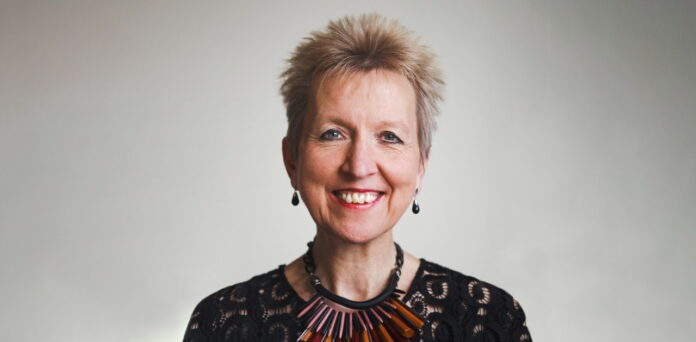“Only 26% of the members of the boards of the largest listed companies in Greece are women”, emphasized Hedwige Nuyens, chair of the organization European Women on Boards (EWoB), speaking to Naftemporiki.
“Greece had set targets in the past, but at a relatively low level. However, there are discussions to implement legislatively the Community Directive’, which provides that by the middle of 2026 every company listed on the stock exchange in the European Union must have at least 40% female non-executive directors or have female representation of executive and non-executive executives at least 33%”, she noted.
The head of a European organization that promotes gender equality at the highest levels of decision-making, Hedwige Nuyens was elected Entrepreneur of the Year for Europe in 1999 and has guided thousands of women to build careers. With more than 35 years of experience in banking and finance, she is also the head of the International Banking Federation.
For what reasons do you believe that equal participation of women in positions of responsibility is important for business and the economy in general?
European Women on Boards’ mission is to empower and support women to secure board positions in order to create a more balanced and inclusive business environment. Why is this so important?
- Gender diversity brings a broader range of perspectives, ideas and experiences, leading to better decisions. Companies can tap into a bigger talent pool, leading to more innovation and creativity.
- Women contribute to better corporate governance, bringing critical skills and experience in terms of accountability, trust, ethics and communication. This in turns, builds trust with stakeholders and promotes sustainable business practices.
- Numerous studies have demonstrated a positive correlation between gender diversity in leadership and financial performance.
- Companies with better performance and more sustainable business models foster economic growth and competitiveness that benefits society as a whole.
As reflected in the recent surveys of EWOB on gender equality, there is a mixed picture across the Eurozone with women in several countries exceeding already the 40% of Board seats. However, there are also countries lagging significantly behind. What do you consider as main reasons for these discrepancies and how do you plan to reconcile this gap given the tight schedule for the transposition by the end of 2024 of the EU Directive into member states’ legislation?
Countries that have introduced targets, via legislation or with non-binding guidelines, have made big steps forward, with some already meeting or exceeding the EU Directive the target of 40%. Forbes published an article by Paul Gaudiano showing that the number of women on Boards went from 8 to 38,8 % in the last 2 decades, while countries with no measures whatsoever stagnated (figures based on EIGE statistics). This is why it is so important to have the EU Directive in place setting binding targets across the 27 Member States. There is clear guidance on how this should be implemented, with targets to be realized by mid-2026.

Based on your feedback and contacts with the Greek authorities, how you perceive the current status in Greece as regards the diversity in corporate boards, and do you expect any sort of challenge in terms of the transposition of the relevant EU Directive into the local corporate governance law?
Looking at the statistics, Greece is in the second half of the pack, with 26 % female board members in the largest stock listed companies. Greece has been setting targets in the past but at a relatively low level. Talks are ongoing to implement the Directive into national law. There is broad support in Greece for the EU Directive.














